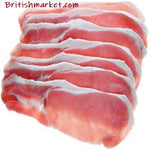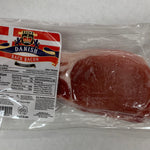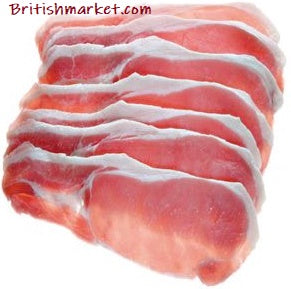My Location
-
 Easter 2026
Easter 2026
-
 Frozen Food
Frozen Food
-
 Baking
Baking
-
 Beans, Peas, Soups & Tins
Beans, Peas, Soups & Tins
-
 Beverages
Beverages
-
 Biscuits, Crackers & Cookies
Biscuits, Crackers & Cookies
-
 Cake & Desserts
Cake & Desserts
-
 Candy / Sweets
Candy / Sweets
-
 Crisps & Snacks
Crisps & Snacks
-
 Cereal
Cereal
-
 Chemist / Pharmacy
Chemist / Pharmacy
-
 Curry Paste, Sauces & Chutney
Curry Paste, Sauces & Chutney
-
 Desserts
Desserts
-
 Gravy, Stock & Paste
Gravy, Stock & Paste
-
 Haggis
Haggis
-
 Indian Sauces, Paste and Pickle
Indian Sauces, Paste and Pickle
-
 Jams & Preserves
Jams & Preserves
-
 Poppy Appeal
Poppy Appeal
-
 Pot Noodles & Super Noodles
Pot Noodles & Super Noodles
-
 Pickle & Relish
Pickle & Relish
-
 Sauces
Sauces
-
 Scone Mix
Scone Mix
-
 Gluten-Free / Free From
Gluten-Free / Free From
-
 Tea
Tea
-
 Tea Accessories
Tea Accessories
-
 Teapot & Tea sets
Teapot & Tea sets
-
 Tea For One
Tea For One
-
 Sugar & Creamer
Sugar & Creamer
-
 Tableware
Tableware
-
 Serveware
Serveware
-
 Plates & Trays
Plates & Trays
-
 Bowls
Bowls
-
 Cups & Saucers
Cups & Saucers
-
 Mugs
Mugs
-
 Silverware
Silverware
-
 Dinnerware - Accessories
Dinnerware - Accessories
-
 Dinnerware - For Pets
Dinnerware - For Pets
-
 Cards
Cards
-
 Victoria Eggs - Hand-Drawn UK Homeware
Victoria Eggs - Hand-Drawn UK Homeware
-
 Gifts and More
Gifts and More
-
 Jewelry & Accessories
Jewelry & Accessories
-
 Sale
Sale
-
 Christmas Gifts
Christmas Gifts
-
 Games & Toys
Games & Toys
This is a frozen item.
The Total Weight of your Frozen Order has to be a minimum of 6lbs
You can mix & match frozen food
This item has a ship weight of 1/2 lb.
Requires Styrofoam Box and Dry Ice
Krown Danish back bacon makes breakfast worth eating again. Great as a bacon butty.
Smoked, grilled, or fried, these Danish sliced-back bacon rashers are a budget-friendly ingredient to your everyday scrumptious breakfast. These rashers are perfect for a classic British fry up!
Danish bacon is cut from the loin of the pig, differentiating it from American bacon, which is cut from the pig's belly. In Britain, a slice of Danish bacon is usually referred to as a rasher. A very popular British dish containing the meat is a bacon butty, or bacon sandwich. The popularity of this bacon in the United Kingdom can be traced back to the mid-1800s, when the Danish began exporting pigs to the region in a strategic economic move that led to one of Denmark's major exports: pigs.
Ingredients:
Pork Loin cured with water, salt, sugar, sodium ascorbate, and sodium nitrite
Nutritional Information:
- 2 Skillet fried slices (23g)
- Servings per container: 10 to 12 – 2 rashers per serving
- Calories 35
- Calories from fat 17.5
How to Cook Krown British Style Sliced Back Bacon
- Remove the back bacon from the packet and pat away excess moisture.
- Preheat a griddle or heavy-based pan.
- No need to season this meat as it is already cured.
- Add a few rashers on the griddle or pan – do not overcrowd.
- Snipping the rind halfway down with a pair of kitchen scissors prevents the bacon from curling.
- Cook the bacon over high heat and turn only after the side has been caramelized. Each side of the bacon needs to be cooked for approximately 2 minutes or till they are sizzling.
Did You Know?
Bacon from the Germanic root “-bak,” and is referred to as the meat which comes from the back of the pig. When it migrated westward, where it became a dish worthy of contemporary gourmets. The Romans called it ‘petaso’. They made it by boiling salted pig shoulder with figs and finally used pepper sauce to season it. For the French ‘bakko’ became ‘bacco’ and soon, in the 12th century, it was adopted by the English, who called it ‘bacoun’. During that period, the term was used for all types of pork products. However, by the 14th century, people began referring to ‘bacoun’ as cured meat.
This item has a ship weight of 1/2 lb.
We have a fry up on the weekend it tastes yummy
It reminds me of my youth, living in England. I've missed it doesn't much.
Looking to see if you carry Scotch Pies
Delicious bacon
The Krown Imported Danish Bacon has become a breakfast staple for me. It's flavorful, crispy, and the packaging ensures its freshness. It's a delicious treat that doesn't break the bank.


 Easter 2026
Easter 2026
 Frozen Food
Frozen Food
 Baking
Baking
 Beans, Peas, Soups & Tins
Beans, Peas, Soups & Tins
 Biscuits, Crackers & Cookies
Biscuits, Crackers & Cookies
 Candy / Sweets
Candy / Sweets
 Crisps & Snacks
Crisps & Snacks
 Chemist / Pharmacy
Chemist / Pharmacy
 Desserts
Desserts
 Gravy, Stock & Paste
Gravy, Stock & Paste
 Haggis
Haggis
 Indian Sauces, Paste and Pickle
Indian Sauces, Paste and Pickle
 Jams & Preserves
Jams & Preserves
 Poppy Appeal
Poppy Appeal
 Pot Noodles & Super Noodles
Pot Noodles & Super Noodles
 Scone Mix
Scone Mix
 Gluten-Free / Free From
Gluten-Free / Free From
 Tea Accessories
Tea Accessories
 Teapot & Tea sets
Teapot & Tea sets
 Tea For One
Tea For One
 Sugar & Creamer
Sugar & Creamer
 Tableware
Tableware
 Serveware
Serveware
 Plates & Trays
Plates & Trays
 Bowls
Bowls
 Cups & Saucers
Cups & Saucers
 Mugs
Mugs
 Silverware
Silverware
 Dinnerware - Accessories
Dinnerware - Accessories
 Dinnerware - For Pets
Dinnerware - For Pets
 Victoria Eggs - Hand-Drawn UK Homeware
Victoria Eggs - Hand-Drawn UK Homeware
 Jewelry & Accessories
Jewelry & Accessories
 Sale
Sale
 Christmas Gifts
Christmas Gifts













